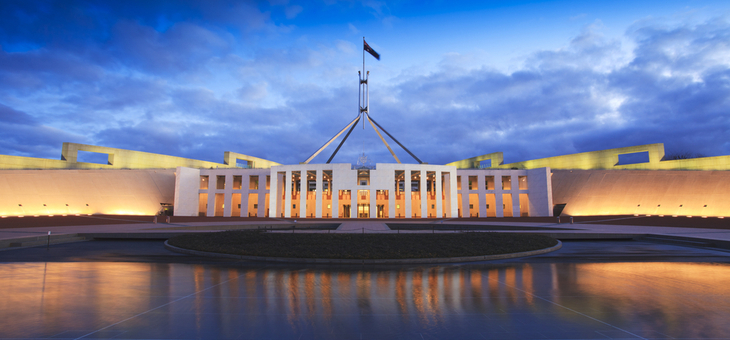Taxpayers have footed the bill for more than $59 million worth of government advertising campaigns in the lead-up to the federal election next year, according to evidence presented at Senate estimates.
The spending has been recorded across a number of government departments including the Department of Social Services (DSS), the Australian Tax Office (ATO) and the home affairs department, The Guardian has revealed.
The spending includes $12.9 million spent by the Department of Industry, Science, Energy and Resources on the Positive Energy campaign, which was designed to spruik the government’s climate credentials ahead of the COP26 climate talks in Glasgow.
DSS spent $13.3 million on its ‘A Life Changing Life‘ campaign, which sought to increase the disability support, aged care and veterans’ support workforce. The campaign runs until June 2022.
Read: Does Porter’s blind trust pass the ‘pub test’?
The Department of Education spent $6.7 million on a campaign promoting the $2 billion JobTrainer program, including $5.17 million for ad spots.
There are strict rules when it comes to government advertising, as taxpayer money is not meant to be spent for the gain of a particular party. There is, however, a need for governments to be able to communicate en masse with the general public.
So does the federal government’s recent ad splurge pass the pub test? Not according to its political opponents.
“There’s a place for government funded advertising,” said Labor senator for South Australia Don Farrell.
“But Scott Morrison has turned it into a publicly funded marketing exercise for himself and the Liberal party.”
Read: Older Australians rate politicians’ pandemic performances
Professor of law at the University of Melbourne, Joo-Cheong Tham, says government use of taxpayer money for political advertising was “part of a sordid history in which public resources have routinely been abused for electoral advantage”.
Writing for The Conversation, he said: “The High Court in Combet v Commonwealth made clear that legislation authorising government spending (appropriation statutes) imposes virtually no legal control over spending for government advertising, because of its broad wording.
“In the absence of effective statutory regulations, there are government guidelines that prohibit overtly partisan advertising with government funds, such as ‘negative’ ads and advertising that mentions party slogans and names of political parties, candidates, ministers and parliamentarians.
“These guidelines nevertheless provide ample room for promotion of government policies under the guise of information campaigns …”
Professor Tham says there should be a ban on federal government advertising in the period leading up to federal elections.
At Senate estimates last month, Labor Senator Nita Green accused the government of wasting money on environmental advertising ahead of the Glasgow COP climate summit when it didn’t have a policy to take to the summit while negotiating with the National Party.
“So we’ve got $12 million spent on advertising the government’s position, but we don’t actually have a policy to take to COP yet with six days to go?” Senator Green asked Liberal Senator Zed Seselja.
“$12 million spent on an advertising campaign, lots of effort that has gone into this, lots of contracts and lots of work, but we still don’t have a policy to take to COP.”
Senator Seselja answered that rather than benefitting the government, the climate advertising was intended to clear up misconceptions among the Australia public about the government’s climate policies.
Read: New bill aims to stop lying politicians and misleading political ads
“What this [the advertising] is doing is responding to that clear desire for the public to know what is happening in this space; to make sure that there is an understanding of the very substantial gains Australia has made when it comes to reducing our emissions,” Senator Seselja said.
“It counters some of the lies that are out there from time to time. I think it’s a very useful advertising campaign for the Australian public to actually know what is actually happening now rather than what some would suggest is happening now.”
Do you accept that the government needs to advertise to get its message out? Or do you think it’s using your money to make itself look better? Let us know in the comments section below.
If you enjoy our content, don’t keep it to yourself. Share our free eNews with your friends and encourage them to sign up.

